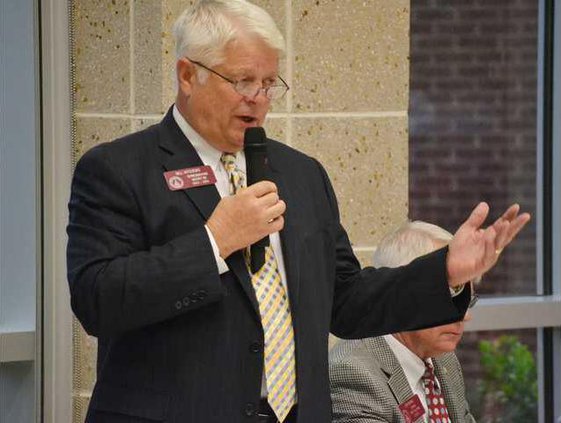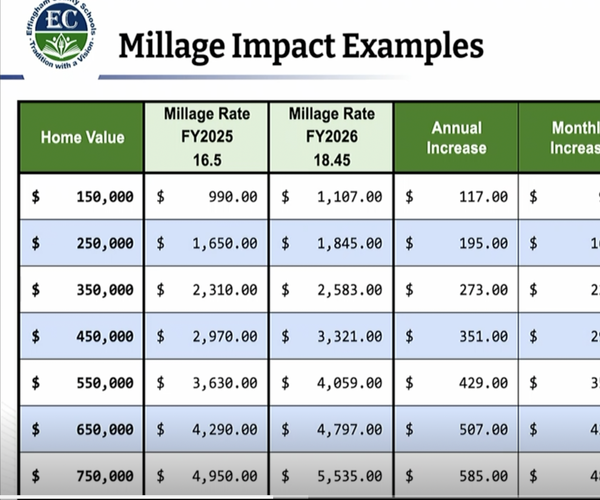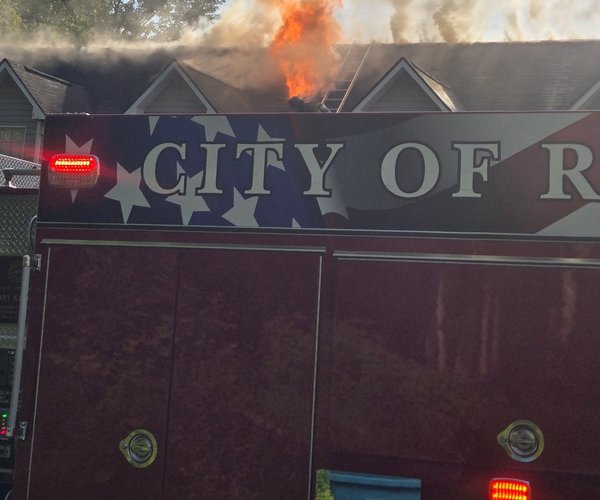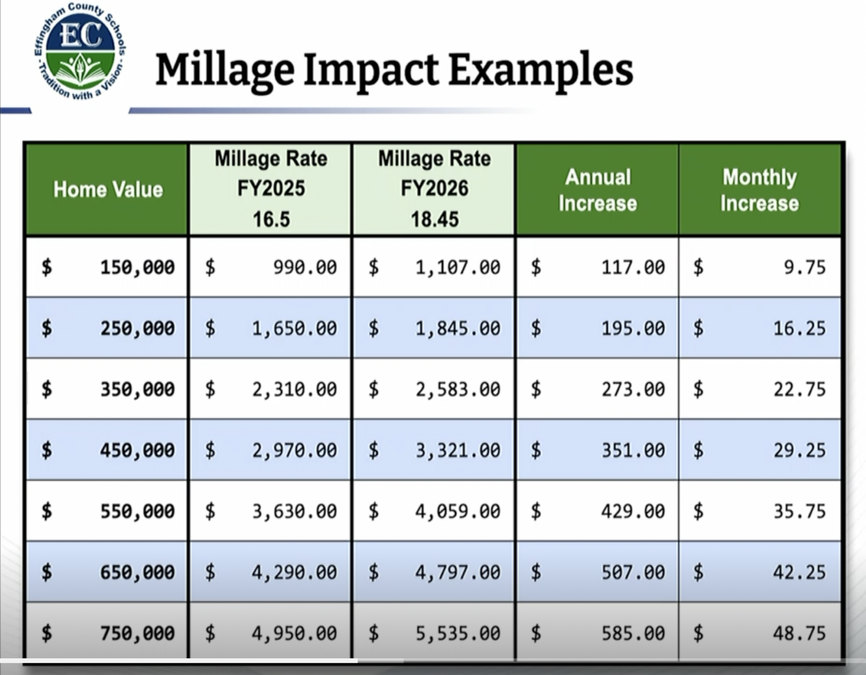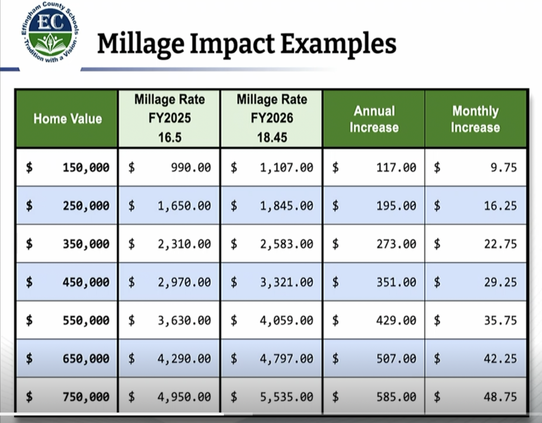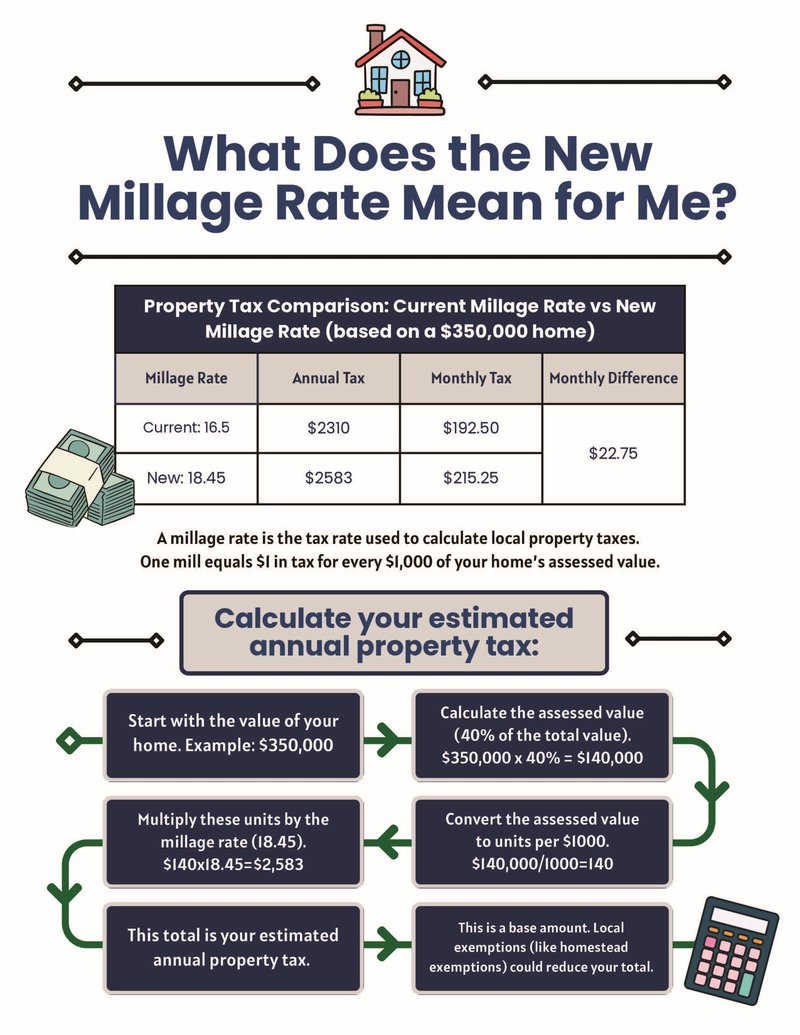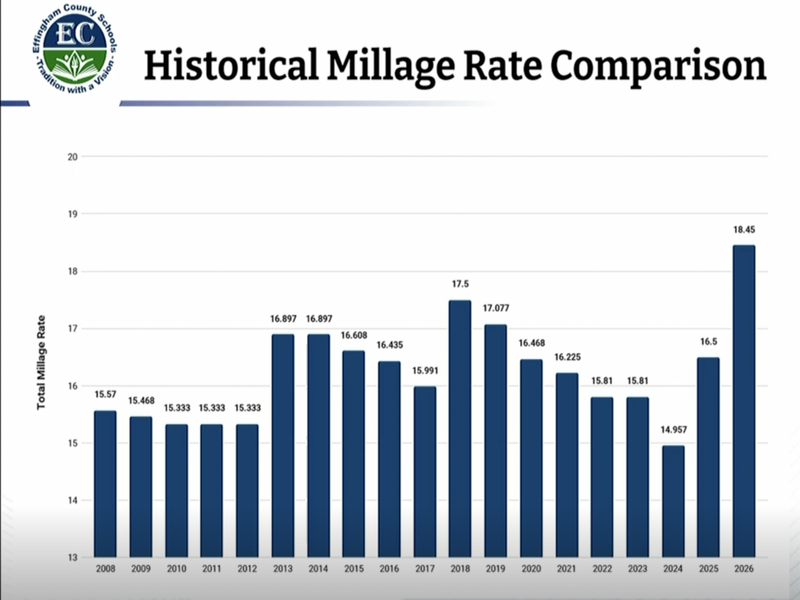Though it won’t provide money for new road projects, the passage of HB 170 is critical for the state’s transportation needs, state lawmakers said last week.
State Sen. Jack Hill and state Reps. Jon Burns and Bill Hitchens told the Effingham Chamber of Commerce’s Eggs and Issues Review breakfast that the transportation funding bill doesn’t solve all of the state’s woes — but it does relieve some of the pressure.
“The bill only applies to existing maintenance,” Hitchens said.
The bill, passed by a 129-41 vote in the House and by a 42-12 margin in the Senate, was withdrawn twice, and House members disagreed with Senate revisions on March 24 before conference committees approved the final version March 31. Gov. Nathan Deal signed it into law Monday morning, and the law’s provisions will go into effect July 1.
“It was a hard choice and there were some hard feelings,” Hitchens said. “Easy decisions are easy to make. Sometimes you have to make difficult decisions. I just don’t know that we could have done without it.”
The transportation funding bill is expected to raise between $900 million and $1 billion, and the state needs at least $1 billion a year to maintain its existing roads and bridges.
“We’re behind,” Burns said. “We need to catch up.”
The state’s shortfall has gotten to the point, Hitchens said, that the state Department of Transportation only has the money to pave state roads once every 50 years. Ideally, the paving should occur every 15 to20 years.
Under its provisions, the 4 percent sales tax on gasoline and excise of 7.5 cents per gallon will be abolished. In their stead, the state will enact a 26-cent excise tax on gasoline and a 29-cent excise tax diesel. The bill also includes a $200 annual fee for alternatively-fueled vehicles, such as electric cars. Commercial electric cars will pay a $300 annual fee.
“I think that’s fair,” Burn said of the fee charged to electric vehicles. “We used some common sense, I believe.”
Also, tractor-trailers and other big vehicles will be assessed a fee from $50 to $100, enabling the state to be compensated for the potential damage resulting from the travel on state roads, according to Burns.
By going to excise taxes rather than sales taxes on motor fuel sales, the state also expects to get credit back from the federal government, perhaps as much as $60 million, Burns said. The state also could be less dependent on the federal highway trust fund, and that could mean other benefits.
“That will speed up the rate of construction,” Burns said. “We don’t have to deal with the bureaucracy that bogs down everything we do. It shows we are taking care of our own issues in this state.”
Hitchens advocated the Transportation Investment Act, or T-SPLOST, that failed in the 12-county Coastal Region. He said he continues to get complaints about congestion at I-95 and Highway 21, and when the Savannah harbor deepening finishes in a couple of years, that will mean more trucks coming out of the port.
“We’re going to double the volume coming out of the port,” Hitchens said, “and you know what a problem it is already.”
Hitchens added he got a list of the bridges in Chatham County — his House district includes west Chatham — and the number of bridges listed as deficient comprise three pages.
“I ride on all of them,” he said.
Burns said his focus on HB 170 was based on finding adequate funding to keep the state economically competitive, but he also was concerned about safety. Burns added the state DOT does a good job, based on the number of fatalities per road miles traveled. But on a rainy morning of the Eggs and Issues Review, Burns said he would not venture into South Carolina to drive on its roads and warns his family to avoid driving in South Carolina when it rains.
“To be kind to my friends just over that way,” he said pointing toward the state line, “it’s absolutely abysmal and a disgrace how they’ve let their infrastructure deteriorate. I will not travel in South Carolina on a day like this because of the rutting in the roads.”
HB 170 also has a provision to allow counties and regions to explore establishing their own group sales tax to fund transportation needs. Hill said he would have state DOT representatives come to Effingham and explain the process, if needed.
“It’s going to be more and more important that local governments put up a share of those (construction) costs,” he said.
Hitchens said passing HB 170 was “the most important thing we did this year.”
“Somebody’s got to do something,” he continued. “We can’t keep kicking this can down the road for years and years and let our roads and our bridges deteriorate. I hate it; I like to think I’m an anti-tax. I had a choice to make — I could vote to keep my job or I could vote to do what I thought was right for the people I represent, and I did the latter.”

